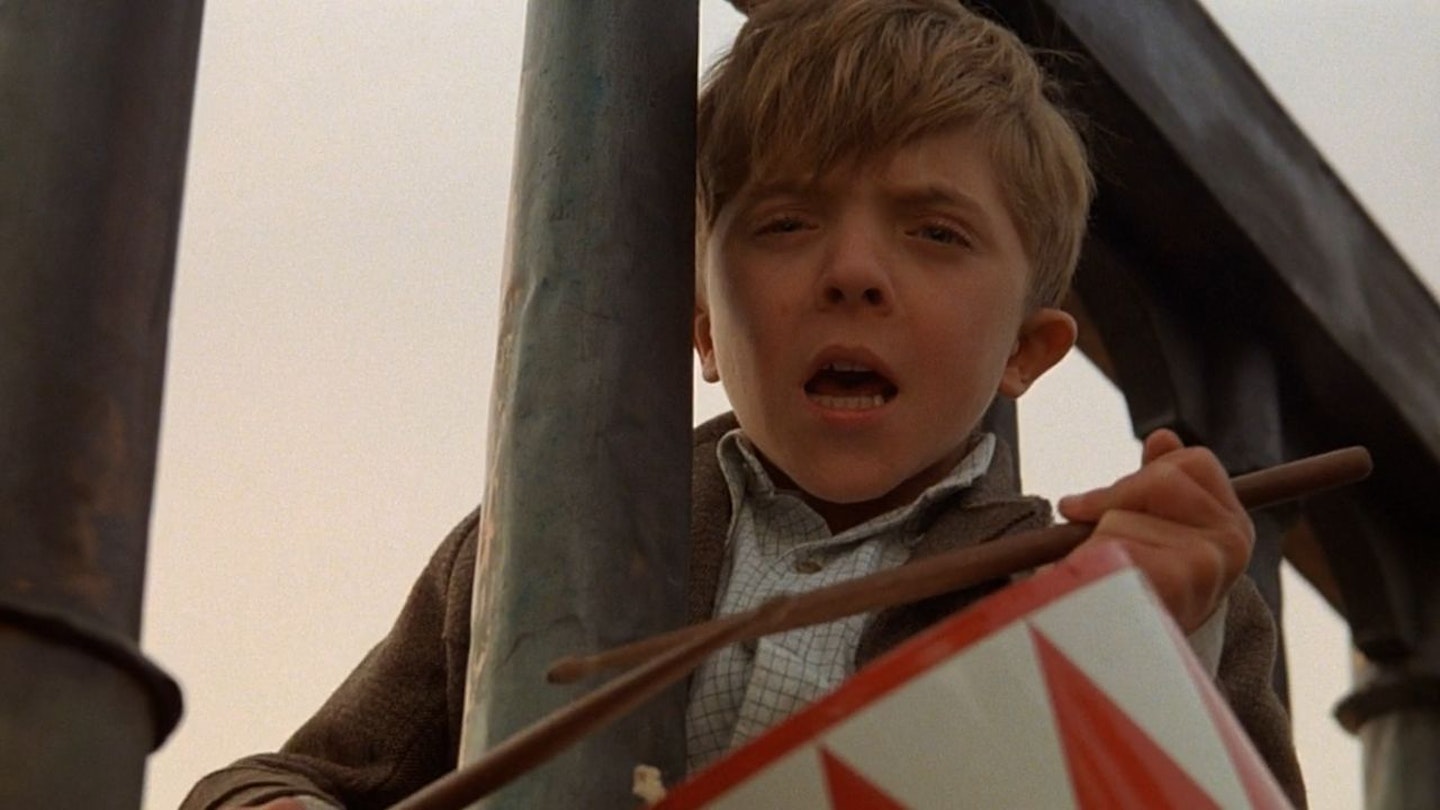Winner of the Best Foreign Film Oscar in 1979, Volker Schl"ndorff's outrageously ambitious adaptation of Gunter Grass' labyrinthine satire on the rise of Fascism in pre-war Germany came a cropper with many contemporary critics for its overly literal approach. In fact, even from the amazing opening scenes of a vast Eastern European plain, Schlondorff mirrors the book's complexities while attempting to make the whole thing vaguely comprehensible to non-Grass buffs.
Oskar (the creepy-looking and downright excellent 12-year-old Bennent - where is he now?) is a boy so disgusted with the adult world that one day he simply refuses to grow up. Instead, he beats out a tattoo on his tin drum and screams piercingly in protest as the so-called adults prove themselves dull and avaricious, lazy and selfish. And as he gets older, he gives the adults the benefit of his wisdom: "Once there was a credulous people who believed in Santa Claus, but Santa Claus turned out to be the gas man." They don't listen.
As the voice of reason in a mad (read Nazi) world, the small fellow falls in love with the thoroughly womanly Maria (Katharina Thalbach), with whom the child, at one point, makes love. And it is bizarre scenes like this - another is the retrieval from a river of a horse's head used to catch eels, with one of the eels slithering from an eye-socket - that make The Tin Drum so deeply disturbing and powerful. Beautiful to look at, but shot with a cruel and unerring eye, it gives no quarter to the German people for their complicity in events, and in turn disgusts, amazes and frightens.
